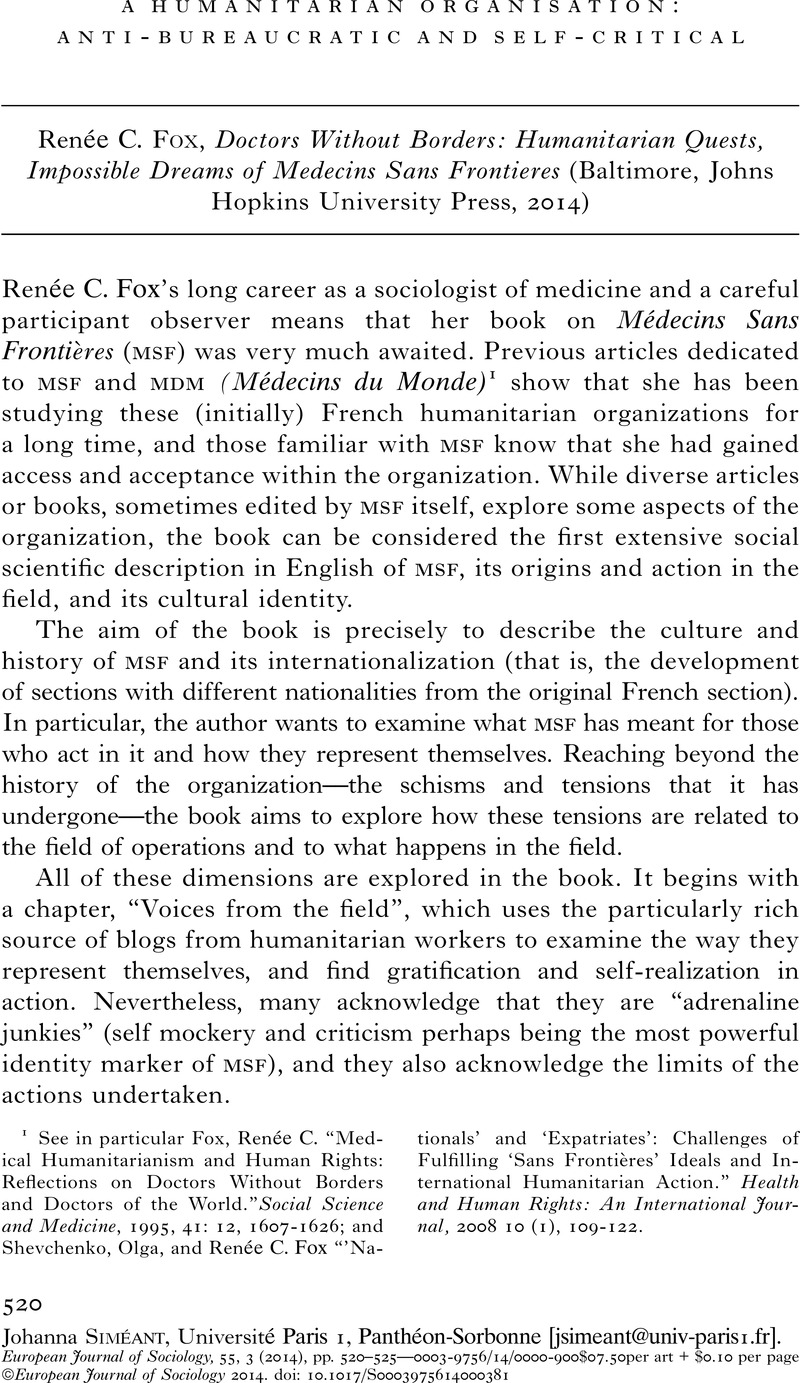No CrossRef data available.
Published online by Cambridge University Press: 16 January 2015

1 See in particular Fox, Renée C. “Medical Humanitarianism and Human Rights: Reflections on Doctors Without Borders and Doctors of the World.”Social Science and Medicine, 1995, 41: 12, 1607-1626; and Shevchenko, Olga, and Renée C. Fox “’Nationals’ and ‘Expatriates’: Challenges of Fulfilling ‘Sans Frontières’ Ideals and International Humanitarian Action.” Health and Human Rights: An International Journal, 2008 10 (1), 109-122.
2 Dauvin, Pascal, Siméant, Johanna, Cahier. Le travail humanitaire : les acteurs des ONG du siège au terrain. Paris : Presses de Sciences Po, 2002.
3 Redfield Peter, Doctors, Borders and Life in Crisis. Cultural Anthropology, 2005, 20 (3): 328-361; Redfield Peter, “A Less Modest Witness: Collective Advocacy and Motivated Truth in a Medical Humanitarian Movement”, American Ethnologist, 2006, 33 (1): 3-26.
4 Fassin Didier, “The Humanitarian Politics of Testimony: Subjectification through Trauma in the Israeli–Palestinian Conflict”, Cultural Anthropology, 2008, 23 (3): 531-558; Fassin, Didier, Humanitarian Reason: A Moral History of the Present. Berkeley: University of California Press, 2011.
5 Vallaeys Anne, Médecins sans frontières: La biographie, Paris: Fayard, 2004.
6 On this point see also Desgrandchamps Marie-Luce, “Revenir sur le mythe fondateur de Médecins sans frontières: les relations entre les médecins français et le cicr pendant la guerre du Biafra (1967-1970)”, Relations internationales, n°146, 2011, p.103.
7 On this point see Siméant Johanna, 2005. “What is going global? The internationalization of French ngos ‘without borders’”, Review of International Political Economy 12 (5): 851-883.
8 Rambaud Elsa, “L'organisation sociale de la critique à Médecins sans frontières”, Revue française de science politique 4/ 2009 (Vol. 59), p. 723-756 and Rambaud Elsa, Médecins sans frontières. Sociologie d’une institution critique, Paris, Dalloz, 2015 (to be published).